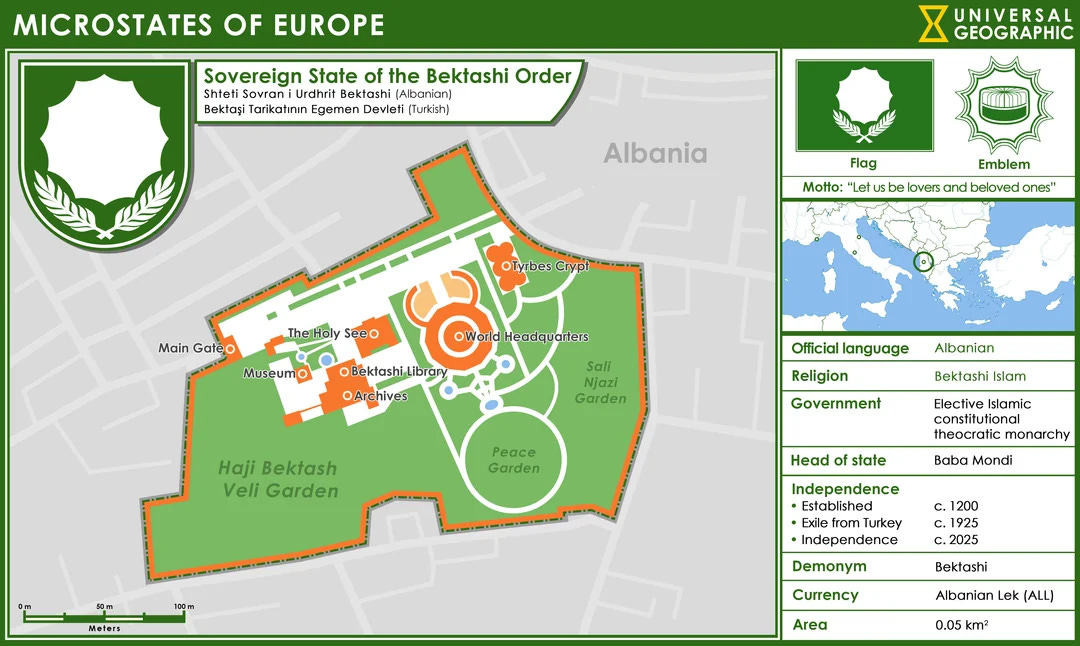Sovereign State of the Bektashi Order: What This Proposed Microstate Could Mean for Micronationalism.
The Albanian Government Proposed the Creation of the Sovereign State of the Bektashi Order in September: What Would Its Success Mean for Micronationalism?

On 29 September 2024, Albanian Prime Minister Edi Rama proposed the idea of creating a new microstate within Tirana, the capital of Albania: to be known as the Sovereign State of the Bektashi Order. The proposed microstate would have its own borders, passports, and government, promoting tolerance and spirituality. If established, it would be smaller than the Vatican City and become the sovereign state with the smallest land area in the world, with a total land area of 27 acres (11 ha). Plans for the creation have been supported by the leader of the Bektashi Order, Baba Mondi.
What is the ‘Bektashi Order’?
The Bektashi Order is a Sufi Muslim ‘sect’ that originated in the 13th century and is headquartered in Albania, although it also has followers in Turkey, Kosovo, and other areas of the Balkans. It is known for its mystical approach to Islam and its focus on spirituality, tolerance, and inclusivity.
The idea of a religious-based microstate is not entirely new, but the Albanian government's involvement makes this case particularly significant. The Bektashi Order already possesses a degree of autonomy in Albania, where it is recognised as a key religious organisation.
What this means for micronationalism
Micronations are usually ceremonial self-declared entities which are unrecognised by their host country. However, the Bektashi Order differs from traditional micronations, given the fact that the Albanian government supports the idea, and that they have a lengthy history, further solidifying their claim to sovereignty. If the Albanian government succeeds in establishing a brand new sovereign state, it could inspire even more people to begin involvement in micronationalism.
If the proposal is given the go-ahead, it could potentially inspire other religious and cultural groups to seek sovereignty. However, without parliamentary approval and broader support, the Bektashi Order's proposed state will remain just that—a proposal.




